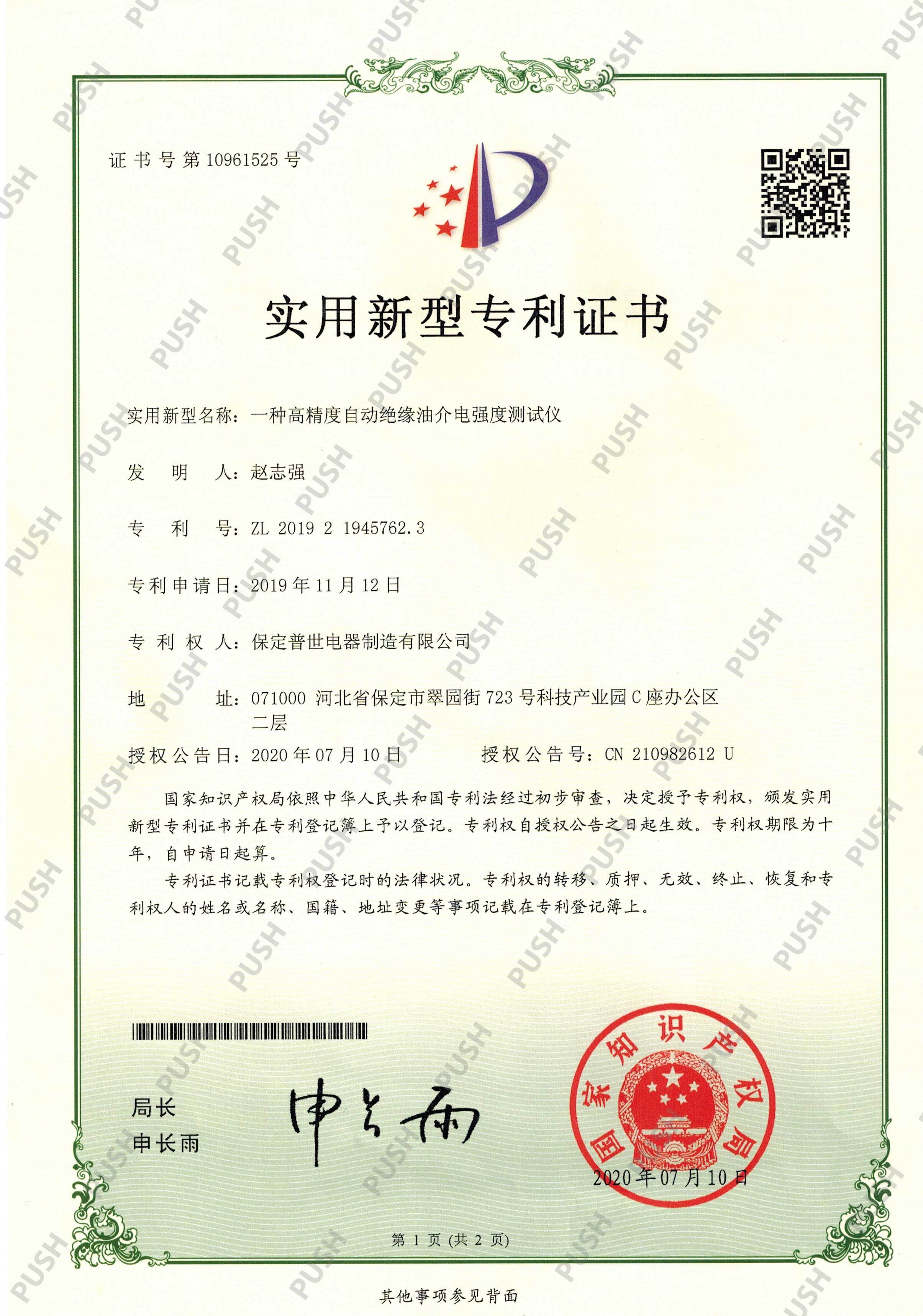 English
English


Oil Quality Analyzer for Accurate Testing and Assessment of Oil Samples
Understanding Oil Testers Ensuring Quality and Safety in Oil Products
In today's world, oil plays a critical role in various industries, from automotive to manufacturing, and even in everyday household products. The quality of oil is paramount, as it affects not only the performance of engines and machinery but also safety and environmental factors. This is where oil testers come into play. These essential tools are designed to assess the quality of oil and ensure it meets industry standards. In this article, we will delve into the importance of oil testers, their types, and how they contribute to the overall quality assurance process.
Why is Oil Testing Important?
Oil serves as a lubricant, coolant, and cleaning agent in various applications. Over time, oil can become contaminated with dirt, moisture, and other foreign substances, which can lead to decreased performance and even equipment failure. Regular oil testing is crucial for several key reasons
1. Performance Optimization Properly maintained oil ensures that machinery operates smoothly and efficiently. Testing oil can reveal its viscosity, acidity, and the presence of wear metals, helping operators make informed decisions about when to change or treat the oil.
2. Preventive Maintenance By identifying potential problems early, oil testing can help businesses avoid costly breakdowns and repairs. This proactive approach extends the life of machinery and reduces downtime, ultimately saving both time and resources.
3. Safety and Compliance Many industries operate under strict regulations that require regular testing of oils and lubricants. Ensuring compliance with these standards is not only a legal obligation but also a matter of safety. Contaminated oil can lead to catastrophic failures in critical systems, especially in the aerospace and automotive sectors.
4. Environmental Protection Testing oil helps minimize environmental impact. By identifying contaminated or degraded oil, companies can take appropriate measures to properly dispose of it, preventing harmful substances from entering the environment.
Types of Oil Testers
There are various types of oil testers, each designed for specific purposes. Here are some common types
1. Viscosity Testers These devices measure the thickness of oil, which is crucial for ensuring it flows correctly through engines and machinery. Viscosity testing helps determine the right oil grade for specific applications.
oil tester

2. Spectrometric Analyzers These sophisticated testers analyze oil samples to detect wear metals and contaminants. By using light patterns, they can provide insight into the condition of the oil and the possible wear on engine components.
3. FTIR (Fourier Transform Infrared Spectroscopy) This advanced technique identifies the molecular composition of the oil, detecting additives, contaminants, and degradation products. FTIR is particularly valuable in determining the remaining lifespan of lubricants.
4. Acid Number Testers Measuring the total acid number (TAN) of oil helps assess its corrosiveness and degradation level. High TAN values indicate that the oil may be breaking down and is in need of replacement.
The Testing Process
The process of testing oil typically involves taking a representative sample, which is then analyzed using one or more of the aforementioned testing methods. Most companies follow a specific testing schedule based on operational needs, machinery requirements, and manufacturer recommendations.
1. Sampling Proper sampling techniques are crucial to ensure the sample represents the entire volume of oil. This may involve using a clean sampling device and following standard operating procedures.
2. Analysis Once the sample is collected, it is sent to a laboratory or tested in-house using various oil testing kits and equipment.
3. Reporting The results are compiled into a report that outlines the condition of the oil, any detected contaminants or wear metals, and recommendations for action.
Conclusion
Oil testers are invaluable tools in maintaining the quality and safety of oil products across various industries. By enabling effective monitoring and analysis, they help ensure that engines and machinery operate efficiently, safely, and in compliance with environmental regulations. Investing in reliable oil testing not only promotes efficient operational practices but also safeguards the investment companies make in their equipment and the environment we all share.
-
Differences between open cup flash point tester and closed cup flash point testerNewsOct.31,2024
-
The Reliable Load Tap ChangerNewsOct.23,2024
-
The Essential Guide to Hipot TestersNewsOct.23,2024
-
The Digital Insulation TesterNewsOct.23,2024
-
The Best Earth Loop Impedance Tester for SaleNewsOct.23,2024
-
Tan Delta Tester--The Essential Tool for Electrical Insulation TestingNewsOct.23,2024





